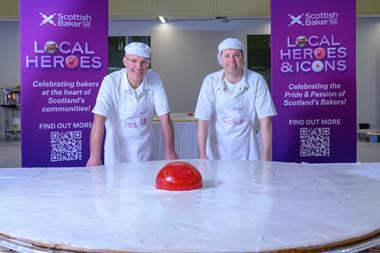Campden BRI is launching a project to investigate the impact of carbon dioxide on the shelf life of modified atmosphere packed foods.
The consultancy says it has been inundated with queries from companies across the food industry, concerned about how the ongoing carbon dioxide shortage will affect their products.
Last week, Warburtons revealed it had been forced to reduce crumpet production as a result of the shortage, which is also hitting meat producers and drinks suppliers.
Some bakeries use modified atmosphere packaging (MAP) for products such as crumpets, wraps, naan breads, part-baked bread and cakes. In such cases, the oxygen is removed and replaced with a mix of carbon dioxide and nitrogen, with the carbon dioxide preventing mould growth and the nitrogen used as a filler gas to replace oxygen and prevent pack collapse.
One option for suppliers struggling with supply is to reduce the amount of C02 used, and to reduce the shelf life of a product.
The new Campden BRI study will look at the effects of different mixes of carbon dioxide and nitrogen on spoilage-related shelf life – ranging from 100% nitrogen to 70% nitrogen/30% carbon dioxide.
Three MAP packed foods will be included in the study and chosen by businesses that take part in the study, but these could include bakery products, ready-to-eat cured sliced meat, ready-to-eat uncured sliced meat, raw meat/chicken or a ready meal.
Campden would like to hear from businesses that want to join the ‘club’ project.
“There is very little information available on the effects of reducing or eliminating the packing gas CO2 on the shelf life of food,” said Dr Roy Betts, head of microbiology at Campden BRI.
He added that manufacturers have either had to continue using the concentration of CO2 needed for their established shelf life, or reduce or cut out CO2 and estimate the effect of this on shelf life.
“Estimating shelf life could lead to the food ‘spoiling’ before the end of life (if the estimated life is too long) or valuable shelf life being wasted (if the estimated life is too short),” he said. “We have responded by launching this club project so manufacturers can base their decisions on scientific evidence.”
































No comments yet